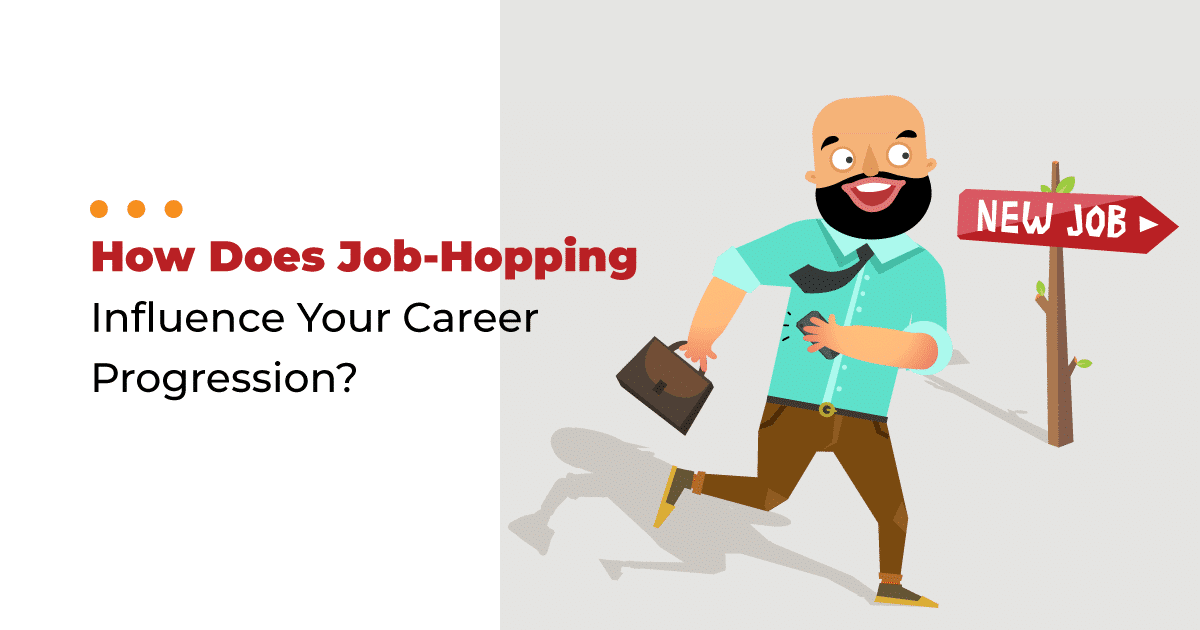Gone are the days when people would stick to one job for many years and in some cases, all their lives. It is not unusual to see a person changing jobs after 1 year in modern times. In fact, it is almost strange for a person to stick with one employer for 10 years.
More often than not, people change careers as well and this is not viewed as strange as young people are not ready to stick to careers that drain them and don’t excite them just because they pay the bills. Job-hopping is now the new normal and it does not look like it will slow down anytime.
Job-hopping is usually common among young, ambitious, and driven people who choose to take charge of their careers. Some employers have devised ways of keeping restless employees within their organisations, by allowing them to, for example, hop from one department to another or one position to another within short periods of time.
So, just what makes job-hopping so appealing to some people?

As earlier stated, most people job-hop because they are highly ambitious and see no tangible benefits or a future in their current jobs or companies. If you are such a person, you feel like your progress is being stifled since there is no room for your ideas or the system is too slow to accommodate your growth agenda.
Additionally, there are those who move from one industry to another, seeking for opportunities that best exploit their skills. Although these skills may fit within any industry, some people feel that they are not being fully exploited and they move around looking for the best fit for their skills.
The issue of remuneration continues to be the biggest motivator for those who are fond of job-hopping. As more and more companies introduce competitive remuneration packages in exchange for talent, employees are becoming impatient with employers who do not want to compensate them well for their skills. This has seen many people move from one job to another as they look for those companies and positions which are willing to remunerate them in a way they feel matches their skills.
There are also those people who crave for new experiences and working in the same organisation for too long may not give them this opportunity. As such, they move from one company to another looking to gain new experiences.
Benefits of job-hopping

Job-hopping is not so bad. Although some people may frown on it, it has its benefits and if you are worried about it, here is why it might be healthy for you.
It can lead to self-discovery. If you are just getting started on your career or you are not sure of what career path you want to take, job-hopping provides you with a great opportunity to explore different career options and fields so that you can settle for that which satisfies you. It is often good at the beginning of your career as you get to sample a bit of everything and make an informed decision. Thus, when you settle down on a career path, you will have made the right decision.
As you job-hop and try to find your area, you also get to network with the people you interact with, along the way. These networks come in handy when you need a contact or are looking for a growth opportunity in your career. Networking is important when it comes to career growth and accessing new opportunities as networks create opportunities for you to interact with people with whom you have similar agendas and share ideas.
As it has been said often, your network is equal to your networth so as you move from one job to another and from one industry to another, you get to make connections with people who are in those industries and who can help you as you also try to settle down into a career.
Job-hopping is also likely to give you greater job satisfaction as you have possibly sampled all your preferred choices and settled on one. Most people take the first job that comes their way when they are actively looking for a job and staying at such a job for too long may not lead to satisfaction as there is the possibility of a mismatch between your skills, interests, and the job.
If you are not excited about your current job and there is no opportunity for another one within the organisation, it may be wise to move so that you can try to find something more stimulating.
As an investment for the future, job hopping helps you gain more skills than a person who typically stays in one organisation for too long. Every company has a different way of doing things even if it is within the same profession. If you move across different industries, you also gain skills that are unique to the industry and this makes you very marketable in future.
As the world changes and technology takes over the workplace, you need an array of skills to survive in a world that changes by the day. As such, moving from one job to another can be helpful for people who like to challenge themselves and learn new things while at it. As you job-hop, you are also likely to gain numerous skills that can be used in many industries.
On the other hand, job-hopping can be used as a backup for your claim that you are adaptable and a quick learner, because it shows that you can survive in different organisation and organisational cultures. You also come across as someone who can take risks and this is a very attractive attribute in some industries and organisations.
And finally, we all want more zeros on our pay cheques and while this may not be very easy to get while holding onto the same company, job-hopping can help you get a raise. Most people will actually consider changing jobs if they have a chance of getting a raise. This is because it is often hard to get a significant raise when staying in the same company. Changing jobs might also come with a better remuneration package, something that is also an incentive for many people.
Demerits of job-hopping

While job-hopping definitely has its packs, for those who are ambitious and who seek rapid growth, it can often make employers mistrust you and be reluctant to invest in you. The process of recruiting and training a new person is not only tedious, but it is also expensive. As such, employers would want to bring on board someone who is willing to stick around for a long time as this cuts recruitment costs.
Additionally, most employers will not trust you as they will be convinced that you will jump ship at the slightest sign of trouble. It will also demonstrate that you do not have the ability to stay on board and seek solutions, yet you were hired to help find solutions to business problems.
Job-hopping shows that there is no point in investing in you because you are unlikely to stay around and add value to the company.
As if that is not enough, in the event that an employer decides to give you the chance, that same employer might decide to let you go in the event of turbulence because you have a history of job-hopping and there is no assurance that you will stay anyway. This may also limit your chances of growth as employers might be hesitant to promote someone who might not stay for long.
Additionally, it can limit your growth chances as you are likely to move around at the same level while sticking around can actually pave way for growth as you get to prove your worth and thus, become eligible for promotions.
Job-hopping has also been linked to less job satisfaction as people who move around frequently may not stay on to see the successful completion of a project, something that takes time. When you move from one job to the next too often, you are likely to have a feel of everything but not have the actual experience of seeing a task through to a logical conclusion.
Finally, job-hopping can strain relationships with employers, which may work against you in an environment where potential employers are contacting past employers for references. Job-hopping does not give you time to develop deep and meaningful relationships, which are important for effective networking.
Explaining job-hopping on your resume and during an interview

While job-hopping has become inevitable in an unstable job market, it can affect how potential employers view you. Some employers will not see any continuity in skills or growth in skills and worse still, they may not understand what exactly you are trying to achieve. However, even if your experience and numerous jobs may not make sense, you can make them fit for the job you are eyeing.
The first thing is to match your skills to the advertised position while writing your CV. As opposed to writing a CV that dwells on your qualifications or experience, you should write one that focuses on the skills you have gained along the way and are relevant to the job you are applying for.
For example, if you have worked as an accountant and you are applying for the position of a project assistant, you can highlight whatever skills you have gained in financial management that are relevant to project management and how you have handled project-based finances. This shows that you have skills that are applicable to the job you are applying for.
While at it, leave out the unnecessary experiences. Whenever you are applying for a job, customize your CV to fit the job you are applying for. This is important to those who have a history of job-hopping as they are likely to hold different jobs, some of which are not relevant to the position they are applying for. Such experiences raise questions and make your CV unnecessarily long.
The next thing is to show consistency. As much as you have held different jobs and positions, there are those standard skills that you have gained along the way and there is a common thread that strings them together. Link these skills to the job you are applying for to actually demonstrate that you have what it takes to get the job done.
The biggest part of a job application is one that shows how your experience is related to the job you are applying for and how you can use those skills to solve business problems.
Finally, job-hopping can be a positive or negative thing. At the end of the day, the important thing is to have a clear objective while job-hopping so that you can fulfill your needs and get the best out of every job you hold. With the rapid disruption of the workplace by technology and jobs becoming unstable, job-hopping has become common and the important part is to gain as much relevant experience as possible.
Additionally, when starting out on your career after leaving campus, you are likely to hold different jobs as you try to find one that best suits you. However, this should not limit you as you can prove that all the jobs have been of value to you and the experiences can be of value to a future employer.





